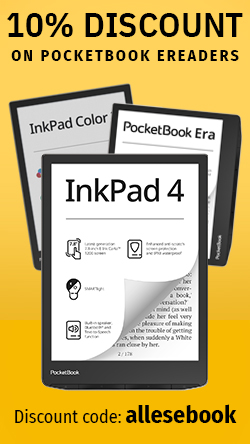eLearning Breakthrough: Digital Reading on Par with Paper, Study Shows
 Some time ago, there were various indications that it was detrimental to learn from eBooks or digital content. Back then, a US newspaper cited several points to support this claim.
Some time ago, there were various indications that it was detrimental to learn from eBooks or digital content. Back then, a US newspaper cited several points to support this claim.
It was said that Amazon Kindle eBook Readers distributed at the beginning of a school year were hardly used thereafter, and that students preferred reading from paper rather than an electronic display. Even the perceived attention span was considered lower when using an eBook Reader.
A neuroscientific study from Johannes Gutenberg University Mainz, presented at the Frankfurt Book Fair, has now dispelled these assumptions. The study was conducted in collaboration with the MVB Marketing and Publishing Service of the Book Trade Ltd. “E-books and e-readers are playing an increasingly important role in the global book market. Nevertheless, readers in Germany are skeptical of e-books and electronic reading devices. The aim of the study was to investigate whether there are valid reasons for this skepticism,” explains the study’s initiator.
The research was the first in the world to analyze reading on different surfaces with an age- and gender-balanced sample. Participants were given various texts of differing complexity. The media used for reading the texts included an e-reader (Kindle 3), a tablet PC (iPad), and paper. Reading behavior and neural processing power were measured using a combined method of eye movement tracking and brain activity (EEG). The study examined reading behaviors and strategies, comprehension, retention capacity, and memory, as well as participants’ personal preferences for each medium.
The results are surprising: Reading on tablet PCs offers an imperceptible advantage over eInk readers or paper, making information easier to process. While younger participants showed no reading differences among the three media, older participants could read faster on a tablet PC. In stark contrast to these findings, the subjective impression remains. “Almost all participants stated that reading a printed book is the most enjoyable experience for them. This subjective impression was dominant. However, it does not align with the data we collected in the study,” said a participant involved in the study.
“With this study, we can scientifically dispel the widespread belief that reading on a screen has negative effects,” states another statement. Although there will undoubtedly be further research in this field, this new study provides a solid foundation for integrating digital reading devices into school and educational operations, as it is evident they have no disadvantages.
Furthermore, it can be assumed that personal preferences for paper will diminish with the increased use of digital media. It is particularly interesting and potentially significant for the preparation of educational and training content that information can seemingly be processed more easily on tablet PCs.
